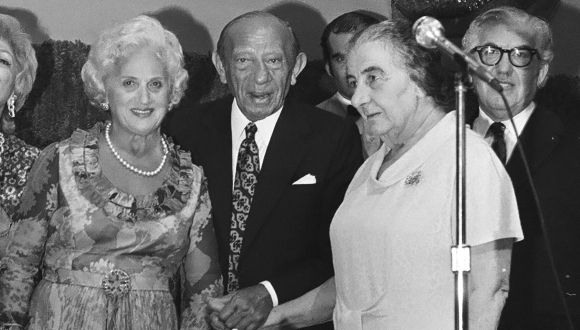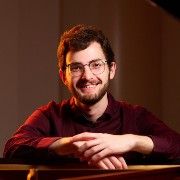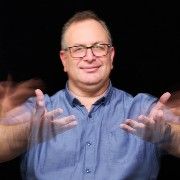Connecting the Past and the Present
The guardian of time and order on TAU’s dynamic campus, the TAU Archive in 2021 marked 50 years since its creation. Buried deep in the heart of the Sourasky Central Library, the Archive stores countless historical treasures that tell the story of the University.
These include a stirring narrative by former TAU Rector Prof. Dan Amir documenting Israel’s involvement in the struggle to free Soviet Jewry in the 1970s, a movement in which he and TAU played an active role; historical photographs from the University’s early years in Abu Kabir village in south Tel Aviv (1953-1965); the ground laying of the current Ramat Aviv campus in 1964; the personal archive of the University’s first President, Dr. George S. Wise (1960s-1980s), which captures the early years of TAU’s journey; and the hand-written musical notes of composer and principal violist of the Israel Philharmonic Orchestra, Oedoen Partos, who directed the Music Academy until the late 1970s.
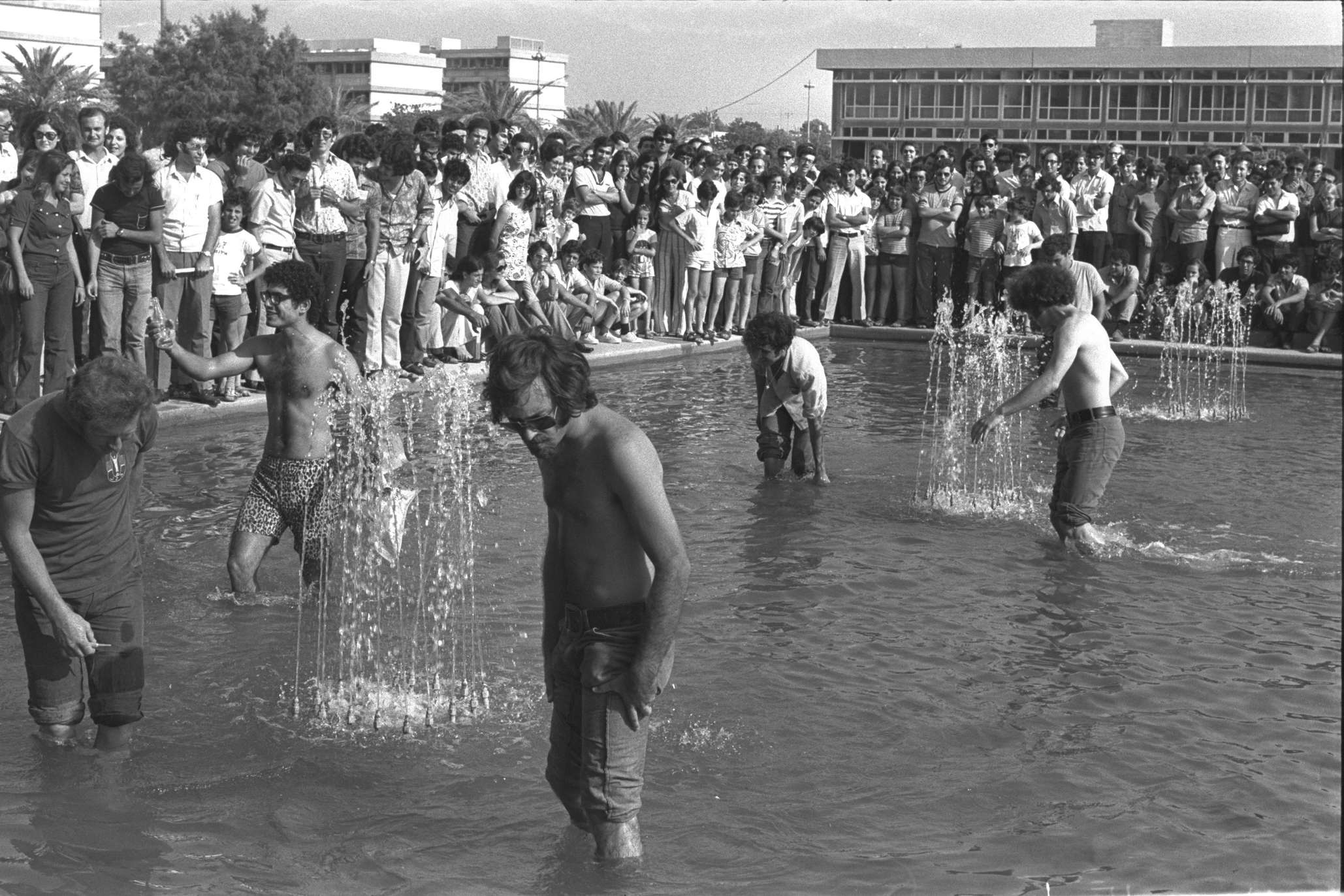
Students cool off on campus in the 1970’s.
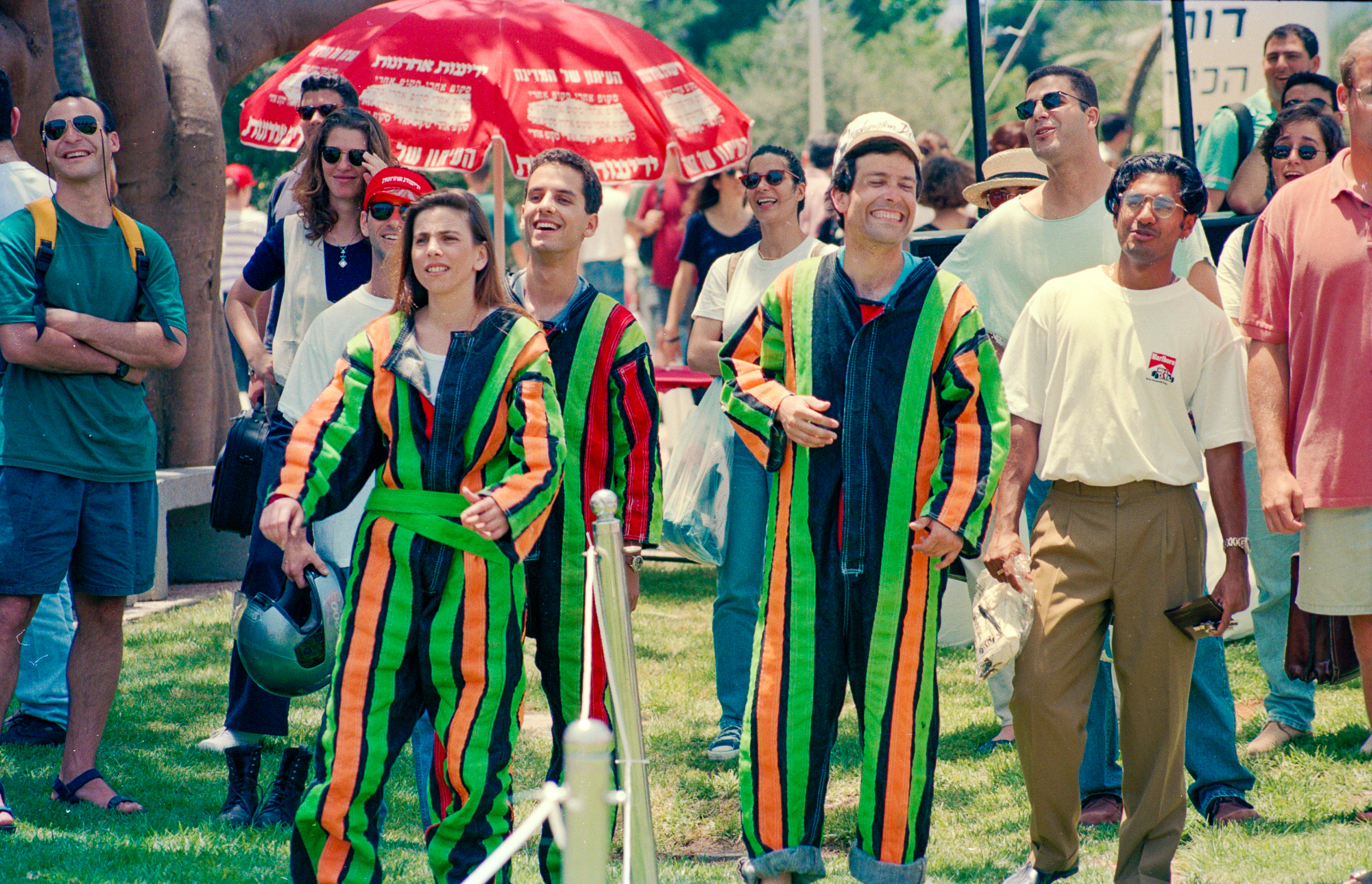
Student Day, May 1995.
“The history of TAU is an integral part of the history of Tel Aviv and Israel as a whole. Documenting and preserving this history for future generations is a vital mission that the University Archive has carried out with impeccable professionalism and drive for the last 50 years,” said TAU President Prof. Ariel Porat.
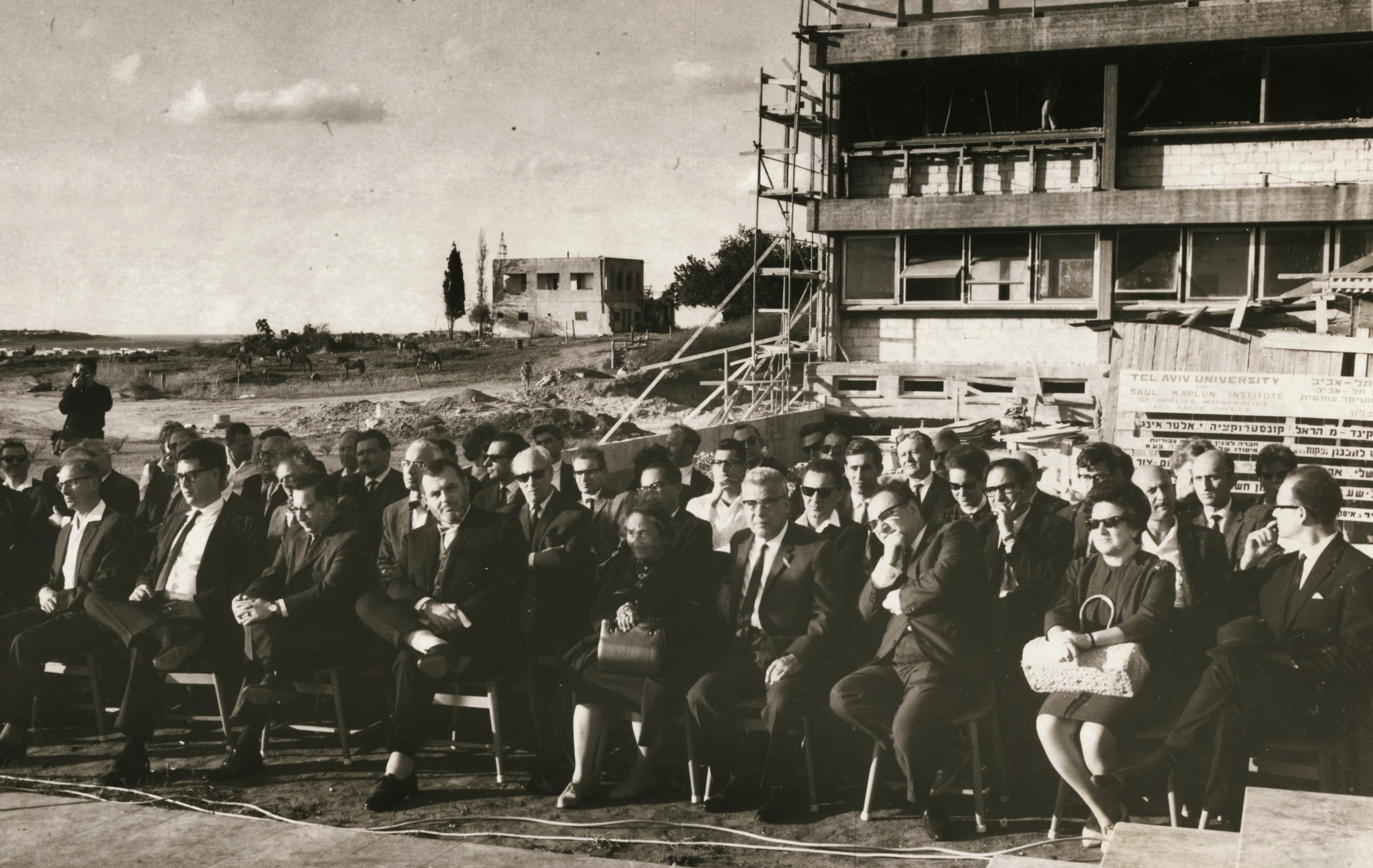
Opening of the 1965-1966 academic year at the “new” Ramat Aviv campus.
Moshe Shilo, a former director of the IDF archives, created the University Archive in 1970. Today, the safe-keeper of the Archive is its longtime director Gedalya Zhagov, himself an alumnus of TAU in History, who celebrated his 40th work anniversary at the University in 2021.
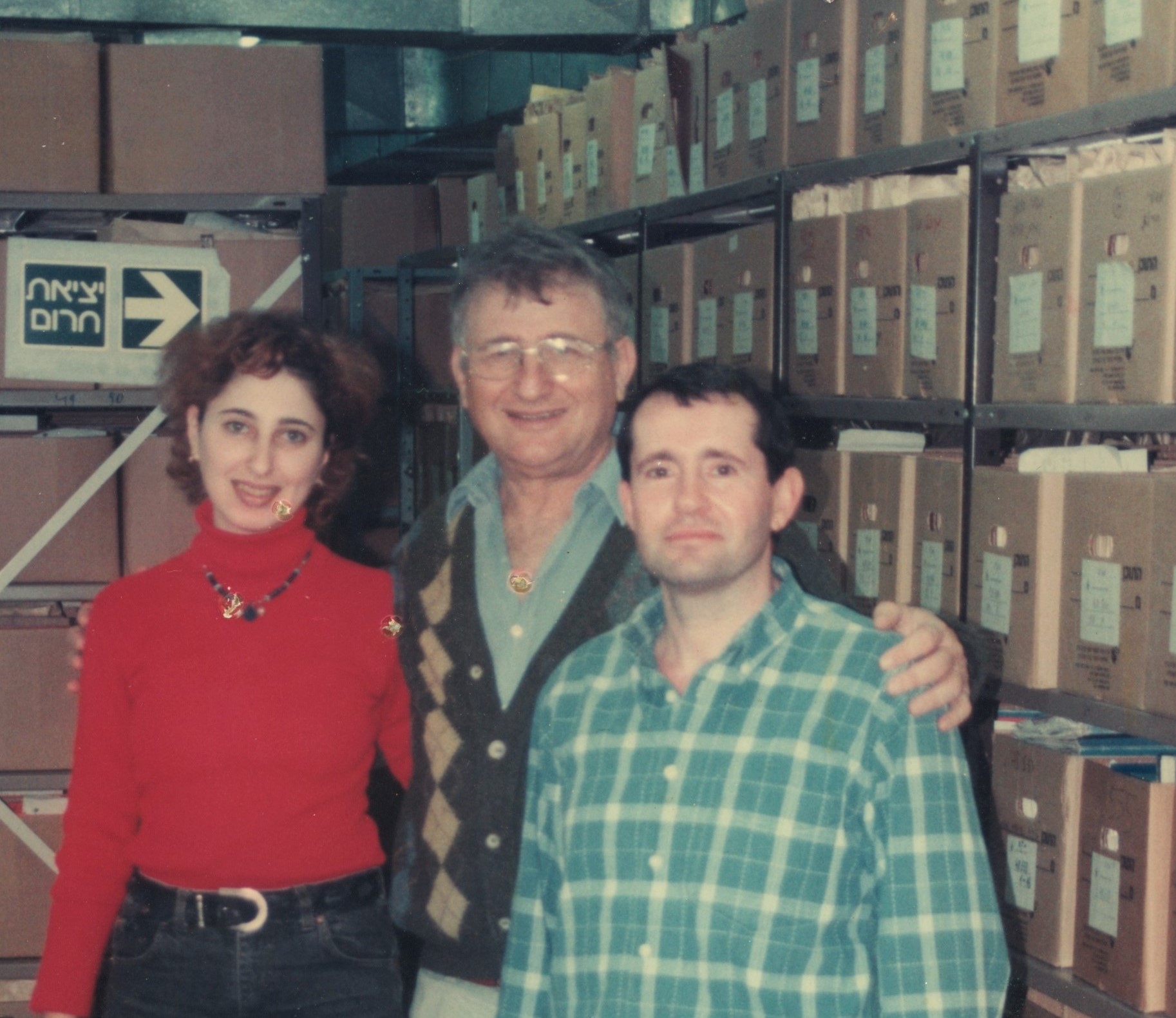
The TAU Archive staff in 1997, Director Gedalya Zhagov on the right.
“The Archive is essential for the research of the University’s history and history in general,” Zhagov says. “It showcases the pride we take in our legacy. It also connects us to the academics and other key figures of the past who are at the heart of our institution."
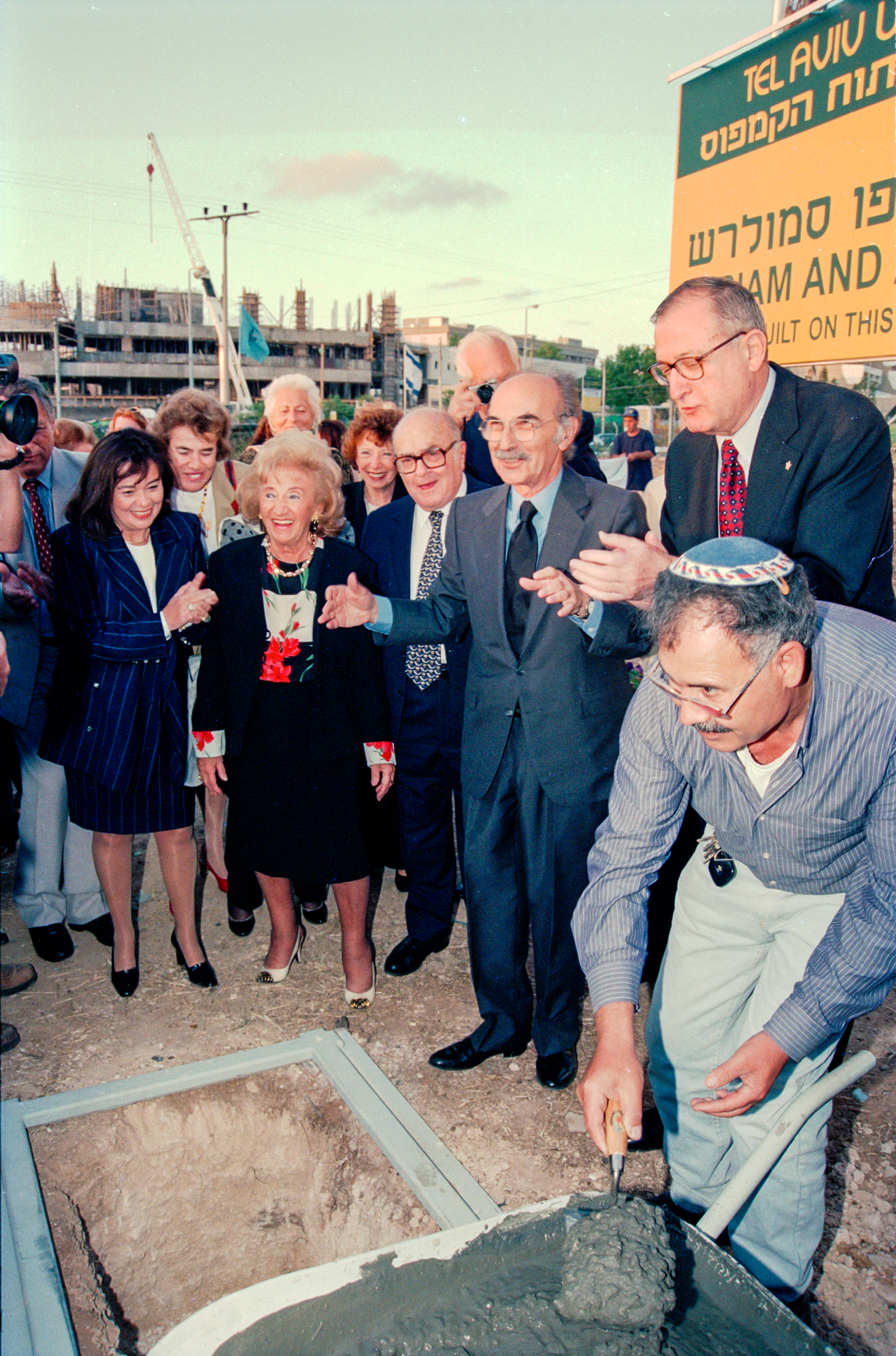
Groundbreaking of the Miriam and Adolfo Smolarz Auditorium, May 1998. From left: Polly Deutsch, President of Argentinean Friends of TAU, Miriam Smolarz and Adolfo Smolarz (right).
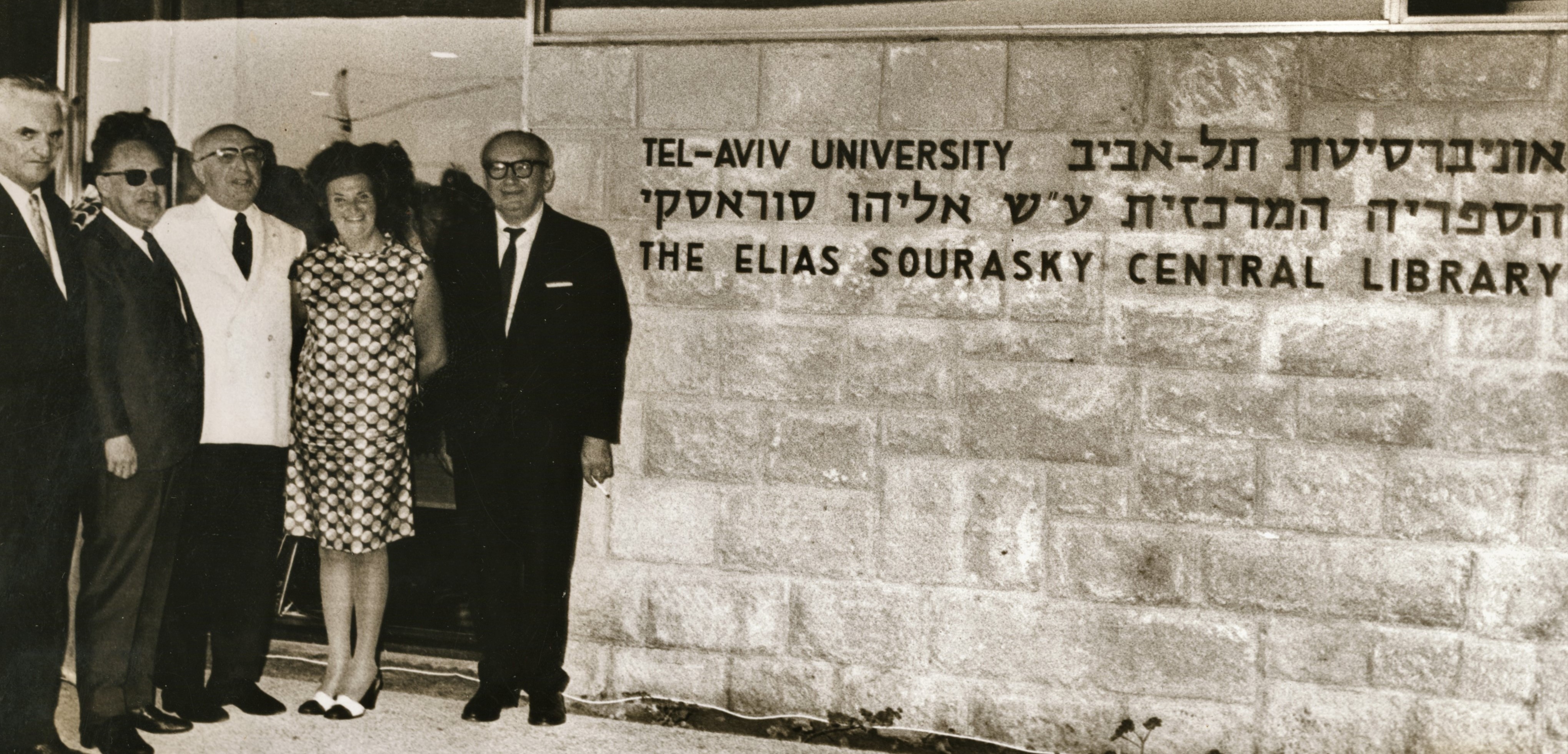
Mr. & Mrs. Elias Sourasky (center) at the opening of the Elias Sourasky Central Library, 1968.
The Archive has undergone many changes in its lifetime. The most recent one was record digitalization, which helps solve the ever-present need for physical space and makes the records more accessible to the general public.


